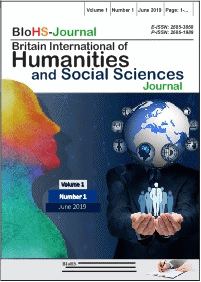Article 24C Paragraph 1 of the 1945 Constitution of the Republic of Indonesia: History and Critical Analysis of Disputes on the Authority of State Institutions
Abstract
In simple terms, the ratio legis can be interpreted as the reason why there is a provision in the law. Article 24C paragraph (1) of the 1945 Constitution of the Republic of Indonesia determines the authority possessed by the Constitutional Court, paragraph (1) reads: The Constitutional Court has the authority to adjudicate at the first and final levels whose decisions are final to examine laws against the Constitution, decide disputes over authority a state institution whose authority is granted by the Constitution, decides on the dissolution of political parties, and decides on disputes regarding the results of general elections. The limiting provisions of Article 24C paragraph (1) seem to close the scope for expanding the Constitutional Court authority to decide disputes over the authority of independent state institutions. Meanwhile, this is a state requirement. This research uses a statutory approach with a descriptive analysis method. The conclusions obtained are: 1) it is not possible that a state institution that has supervisory authority has conflict with other legal institutions; 2) there are state institutions whose authorities are regulated by law and have the potential for authority disputes, but are resolved through the executive agency; 3) there is the authority of state institutions that have the potential for conflict of authority but there are no rules for resolving them.
Downloads
References
Aditya Wiguna Sanjaya, Rekonstruksi Bentuk Kesalahan Dalam Tindak Pidana Pencucian Uang Pasif, 2020.
Ahmad Fadlil Sumadi, “Hukum Acara Mahkamah Konstitusi dalam Teori dan Praktik”, Jurnal Konstitusi, Volume 8, Nomor 6, Desember 2011, p. 849.
A. Muktie Fajar, 2006, Hukum Konstitusi Dan Mahkamah Konstitusi, Jakarta: Sekretariat Dan Kepaniteraan Mk Ri, p. 119.
Asr Agustiwi, 'Keberadaan Lembaga Negara Pasca Amandemen Undang-Undang Dasar 1945 di Indonesia', RECHSTAAT Ilmu Hukum Fakultas Hukum UNSA, vol. 8, no. 1 (2014), pp. 1–10.
Bekti Suharto, 'Menyoal Sudut Pandang: Kritik Terhadap Epistemologi Positivisme Hukum', Prosiding Seminar Nasional (2015).
Dachran Busthami, 'Kekuasaan Kehakiman Dalam Perspektif Negara Hukum Di Indonesia', Masalah-Masalah Hukum, 2018
Eka NAM Sihombing, 26 Maret 2015, Penyelesaian Sengketa Pemilukada Pasca Putusan Mk Nomor 97/Puu-Vi/2013, Dalam Https://Ppkjatiwaras.Wordpress.Com/2015/03/26/Penyelesaian-Sengketa-Pemilukada-Pasca-Putusan-Mk-Nomor-97puu-Xi2013/, Downloaded on Friday 7 August 2015, 01:51.
Jimly Asshiddiqie, 2012, Hukum Acara Pengujian Undang-Undang, Jakarta : Sinar Grafika, Hal. 211
Saifudien Djazuli, Agustus 2014 01:40, Peran Dan Fungsi Mahkamah Konstitusi, Dalam Http://Apafungsinya.Blogspot.Com/2014/08/Peran-Dan-Fungsi-Mahkamah-Konstitusi.Html, Downloaded on Wednesday, 5 August 2015, 23:13
Saragih, M. Y. (2020). Law, Journalistic Profession and Mass Media Ethics. Budapest International Research and Critics Institute-Journal (BIRCI-Journal) Volume 3, No 4, Page: 2568-2574.
Susana Rita Kumalasanti, Rabu 7 Januari 2015, Saat Konsistensi Putusan Dipertanyakan, Dalam Http://Nasional.Kompas.Com/Read/2015/01/07/13000061/Saat.Konsistensi.Putusan.Dipertanyakan., Downloaded on Friday, August 2015, 01:31
Verenа Klappstein & Mаciej Dybowski (Editors), Rаtio Legis: Philosophical and Theoretic Perspective, (Switzerland: Springer, 2018), p. 9



.png)
_.gif)
















_.gif)












